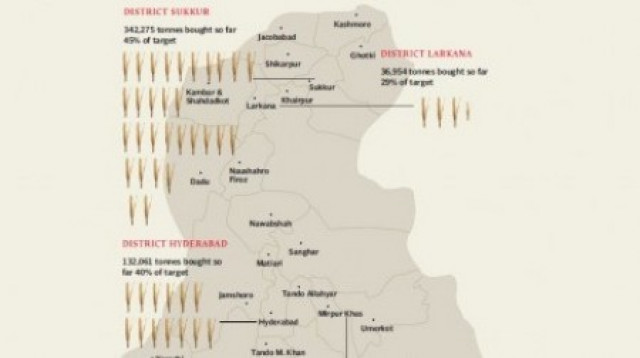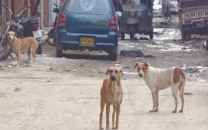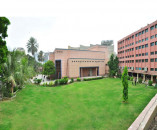Grain drain

Grain drain
Take 55-year old Ghulam Mohammad of Jacobabad for example. He normally reaps 35 maunds of wheat on his four acres. This year, his land yielded double the amount - 75 maunds - but he is scratching his head over how to sell it.
“I went to the office of the District Food Controller to collect gunny bags so I could sell my wheat,” he told The Express Tribune. “But the officials said there were no more left.”
The government hands out gunny bags according to how much land a farmer owns. The farmer fills the bags, brings them to the procurement centre and gets paid Rs950 per 40kg.
The system is, in principle, simple enough. But middlemen and corrupt officials withhold the bags as a result of which farmers are unable to sell their harvest and get paid the official rate.
The farmers, cut off from the government, are then left at the mercy of the local market and a surplus stock. They get barely Rs700 as a result. For farmers like Ghulam Mohammad, this is the cruellest irony of them all. “My wife and children harvest it with sickles since we cannot afford the thresher,” he said. Only the big landlords can afford those machines.
There are many farmers like Ghulam Mohammad who are angry about the system. In Pir Jo Goth, Khairpur two traders were shot dead last Saturday after a fight over the gunny bags.
Protests have broken out across the districts and towns. Growers blocked roads to protest against officials of the food department, alleging they sell the gunny bags to those who grease their palms.
“After there were a number of complaints, the police raided the godown of a trader in Ubauro, Ghotki and seized around one thousand bags illegally sold to another trader,” said Ahmed Ali Bozdar, a grower from the area, while talking to The Express Tribune.
In the meantime, the bumper crop is left lying in the sun.
According to the Sindh Agriculture Department’s figures, the government is expecting 3.5 million tonnes of wheat from 1.031 million hectares. But farmer associations said that because there were irrigation shortages, this Rabi season wheat was cultivated on around 1.02 million hectares.
Therefore, the overall output will be about 3.2 million tonnes. This year, the government has set a 1.5 million tonne target for Sindh. Last year it was 1.2 million tonnes. There are 340 buying centers across the province. “We have bought 0.7 million tonnes so far,” said Nadir Magsi, the provincial minister for food.
He said that he had received some complaints that there was a shortage of bags and claimed that he would take action. However, Abdul Majeed Nizamani of the Sindh Growers Board told The Express Tribune that there are a number of areas in Larkana, Shikarpur, Jacobabad and Nausheroferoz where there are no centres where farmers can take their crop. “Farmers have no choice but to sell their produce to the local traders between Rs700 to Rs800 per 40 kg,” he said.
The food secretary, Naveed K. Baloch, acknowledges there is a problem. “We are trying to address their complaints,” he said.
Taking Stock
But the problem doesn’t end after the wheat has been sold. If it is not stored properly, the entire harvest can go to waste.
The government can store about 0.7 million tonnes, said one official, who did not want to be named. “Once 1.5 million tonnes are purchased from growers half of it will be stocked in privately rented warehouse,” he said. This will cost Rs30 million.
But Abadgar leader Mehmood Nawaz Shah was sceptical. “We have leftover stock from last year,” he said.
“The most significant issue is that 30 to 40 per cent of stored stock gets wasted each year.” The food department has 18 warehouses in the Hyderabad region which can store 157,100 metric tonnes but this is 170,900 tonnes less than the target.
If the rest of the wheat is not stored properly, the weather and pests will get to it. District Food Controller Hyderabad Salahuddin Sheikh claimed that the stock stored inside and outside the warehouse will not have any insect problems till December 31, 2010 as they have used improved pesticides. Sources said, however, that this was highly unlikely because last year in Bholari godown Kotri 500,000 100kg bags kept in the open were destroyed.
This, for farmers like Ghulam Mohammad, is possibly the worst way to get repaid for all his hard work.
WITH ADDITIONAL REPORTING BY ABDULLAH SHEIKH



















COMMENTS
Comments are moderated and generally will be posted if they are on-topic and not abusive.
For more information, please see our Comments FAQ